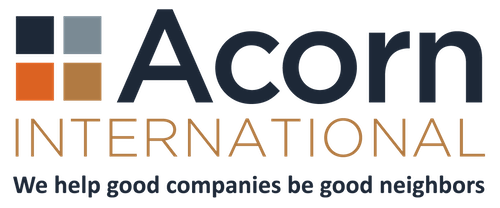ISSUE 57: Immigrant Invisibility
This is an article about applying social science methods through the lens of current events within our communities. It is not intended to advocate for or against any political perspectives.
As social scientists, we strive to ensure our surveys, outreach, and engagement with affected communities are representative of all community members. This can prove particularly difficult in traditionally underserved communities, where those most in need of development benefits face varying challenges to participation. Ensuring that all public forums are legitimately inclusive requires “meaningful engagement.” Offering linguistic-specific translation services, adjusting meeting times and locations, and providing childcare and transportation have been routinely applied. Nevertheless, we’ve observed that concerns and anxieties surrounding U.S. immigration policy hinder full engagement within the community.
Foreign and immigration policy has long been an area of significant interest and discussion, with extensive research underscoring its broad impact. The COVID-19 pandemic personalized many of these effects, bringing critical limitations into sharper focus. The study, Implications of Undocumented Status for Latinx Families During the COVID-19 Pandemic: A Call to Action, highlights pressing challenges faced by immigrants, especially those that may be “mixed-status families” (including undocumented members). Primary among these challenges is that anti-immigrant rhetoric and actions have heightened fear and distrust, discouraging efforts to access health care when needed, much less participate in voluntary public forums.
Demonstrating the scale of these challenges on communities, a September 2024 study by the Migration Policy Institute found that “An estimated 16.2 million people live in mixed-status families – in which one or more family members are U.S. citizens or permanent residents/green card holders, and some are undocumented without legal immigration status.”
https://www.migrationpolicy.org/article/college-educated-immigrants-united-states
The Survey of Immigrants, conducted by KFF in partnership with the Los Angeles Times during Spring 2023, examined the diversity of the U.S. immigrant experience. It is the largest and most representative survey of immigrants living in the U.S. to date. With its sample size of 3,358 immigrant adults, the survey provides a deep understanding of immigrant experiences. Two findings stand out as helpful in encouraging surveys and community engagement programs that are inclusive and safe for members of the communities who were not born in the US.
- Despite an improved situation relative to their countries of birth, many immigrants report facing serious challenges, including high levels of workplace and other discrimination, difficulties making ends meet, and confusion and fears related to U.S. immigration laws and policies. These challenges are more pronounced among some groups of immigrants, including those who live in lower-income households, Black and Hispanic immigrants, those who are likely undocumented, and those with limited English proficiency. Some immigrants face compounding challenges across these intersectional factors.
- Among likely undocumented immigrants, seven in ten say they worry they or a family member may be detained or deported, and four in ten say they have avoided things such as talking to the police, applying for a job, or traveling because they didn’t want to draw attention to their or a family member’s immigration status. However, these concerns are not limited to those who are likely undocumented. Among all immigrants regardless of their own immigration status, nearly half (45%) say they don’t have enough information to understand how U.S. immigration laws affect them and their families, and one in four (26%) say they worry they or a family member could be detained or deported. Confusion and lack of information extend to public charge rules. Understanding the U.S. Immigrant Experience: The 2023 KFF/LA Times Survey of Immigrants – Methodology – 10217 | KFF
Given these concerns, it’s easy to understand how many immigrants or children of immigrants may choose to stay out of public limelight, passing on opportunities and invitations to participate in forums or surveys designed to strengthen their own communities. The question remains: What, then, should we, as social scientists, do to try to break through this barrier to inclusivity and representativeness? Here are some lessons learned from our own work.
- Ask from within—identify, engage, empower and support members of immigrant communities who can lead engagement sessions and surveys with their community members.
- Seek to collaborate- Identify and establish collaborative partnerships with local organizations supporting immigrant and undocumented community members.
- Change the way we ask – learn to ask questions that are free of language that could be seen as prying and threatening (some of the questions in this guide may help (90 Questions to Ask Immigrants (enlightio.com))
- Be ready to apply a distress protocol (https://learning.survivoralliance.org/USER-FILES/70-raven-site/media/Advisory-Distress-Protocol.pd) and tailor the protocols used in conflict zones to create space to stop interviews and dialogue with wary immigrants upon signs of stress, taking a break, providing reassurance, and continuing when the participants are willing
Understanding and building on the richness of all members of diverse communities is essential to meaningful engagement and sustainable project development. By appreciating and tailoring engagement methods for members who carry the concerns of immigrants, we can strengthen not only the validity of our investigations but also the value and sustainability of assets/projects and the benefits they deliver across the full character of affected communities
